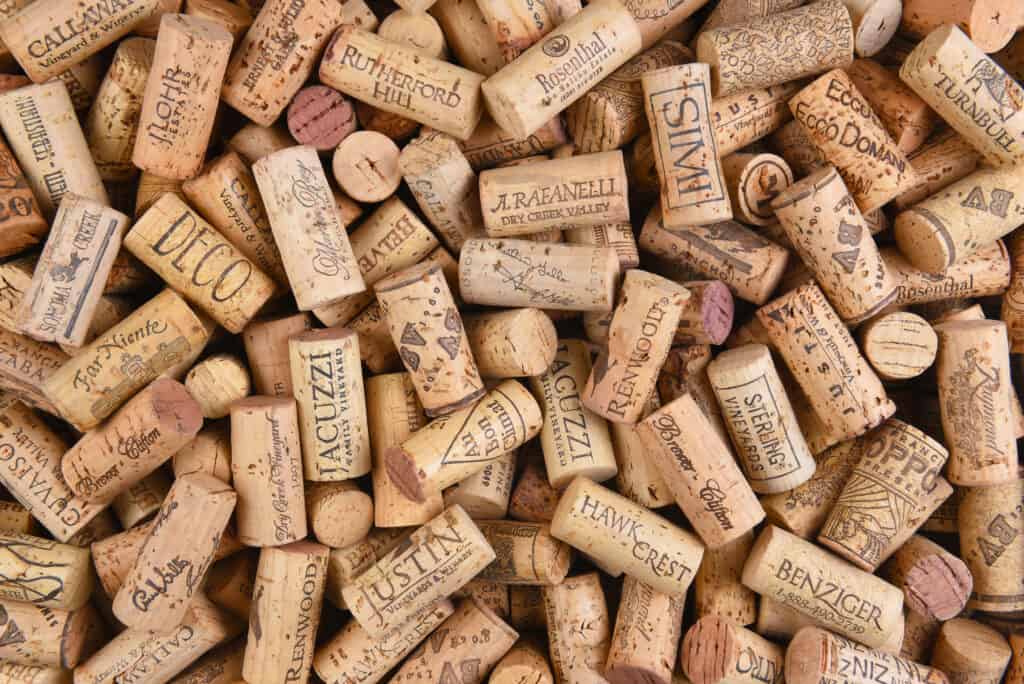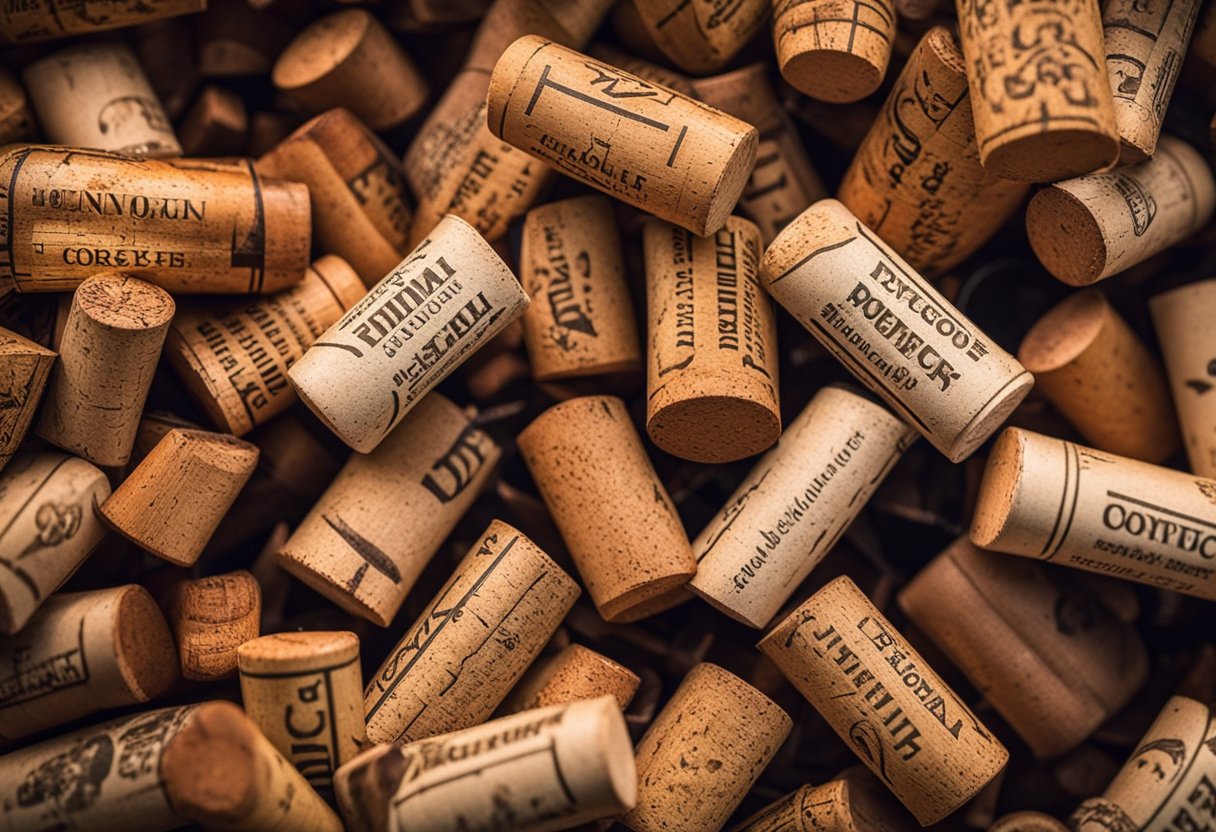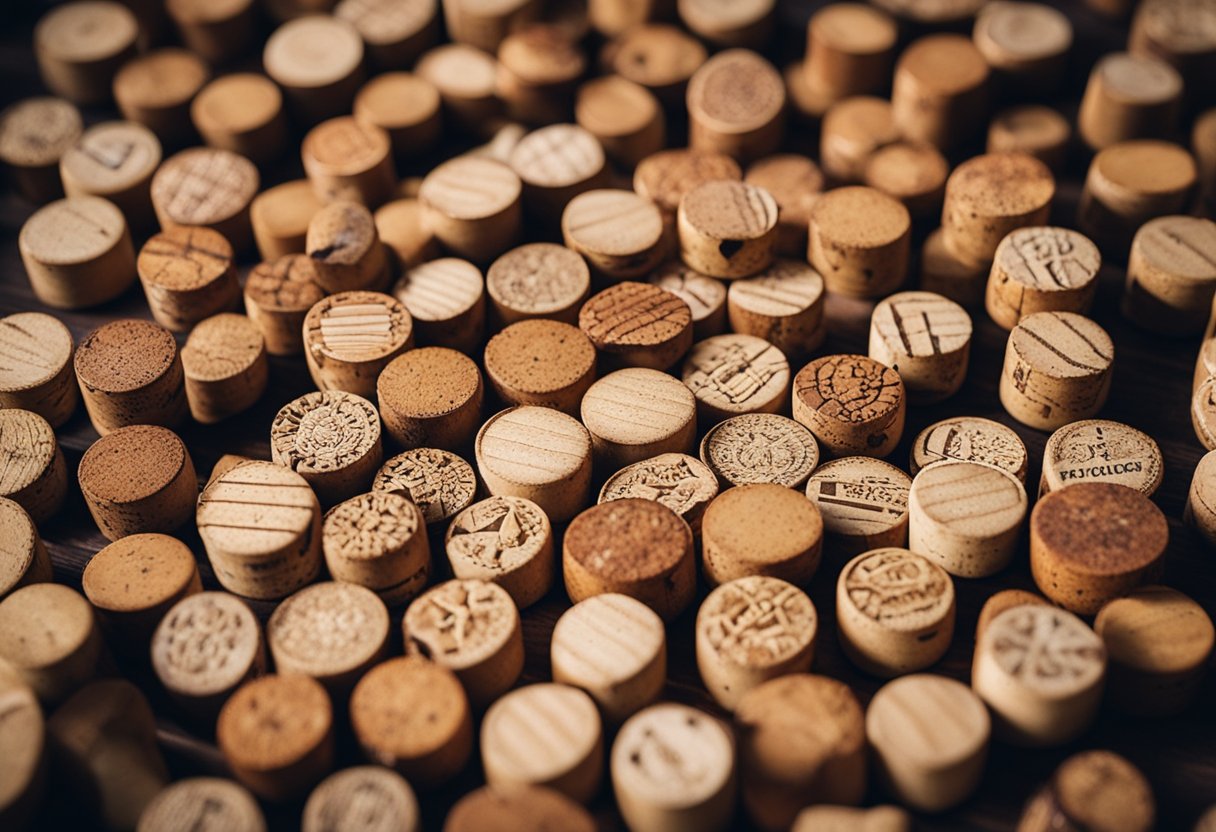As an Amazon Associate I earn from qualifying purchases.
At A Glance
Yes, you can compost wine corks, but with some considerations. Wine corks made from natural cork can be composted as they are organic material. However, they decompose very slowly and may need to be cut into smaller pieces to expedite the decomposition process. On the other hand, synthetic wine corks made from plastic are not compostable and should not be placed in a compost pile. Before composting natural cork, it’s advisable to verify that they haven’t been treated with any chemicals that could potentially contaminate your compost. If you have a large number of corks to dispose of, you might also consider other eco-friendly disposal options such as recycling programs specifically designed for cork.
Wine corks are a common item that many people wonder if they can compost. After all, they are made from a natural material, so it seems like they should be able to break down in a compost pile. However, the answer to whether or not you can compost wine corks is not a simple one.

First, it’s important to understand that not all wine corks are created equal. Some are made from natural cork, while others are made from synthetic materials like plastic. If you want to compost your wine corks, it’s important to ensure that they are made from natural cork. Synthetic corks will not break down in a compost pile and can actually contaminate the soil.
Assuming your wine corks are made from natural cork, the next question is whether or not they will break down in a compost pile. While cork is a natural material, it is also very dense and fibrous, which can make it resistant to microbial breakdown. As a result, wine corks can be slow to break down in a traditional backyard compost pile. However, there are ways to speed up the composting process and successfully compost wine corks.
Understanding Wine Corks
As a composter, it’s important to understand the different types of wine corks and how they can be composted. There are two main types of wine corks: natural and synthetic.
Natural vs Synthetic Corks
Natural wine corks are made from the bark of the cork oak, a tree that grows in Mediterranean countries. These corks are biodegradable and can be composted. They are also impermeable, which means they help retain moisture in the compost pile. When composted, natural cork will break down into a carbon-rich humus that can be used to enrich soil.
Synthetic wine corks, on the other hand, are made from plastic and are not biodegradable. While they may look like natural cork, they cannot be composted and should not be added to the compost pile. Synthetic corks will not break down and will remain in the soil for a long time, potentially harming the environment.
When composting wine corks, it’s important to ensure that they are natural and not synthetic. Synthetic corks can look extremely real, so it’s important to scrutinize them carefully before adding them to the compost pile.
In conclusion, natural wine corks are compostable and can be a valuable addition to the compost pile. Synthetic wine corks, however, are not compostable and should be disposed of properly. By understanding the difference between natural and synthetic wine corks, you can ensure that your compost pile remains healthy and productive.
Composting Basics

As someone who is interested in composting, it’s important to understand the basics of the composting process. Composting is the process of breaking down biodegradable materials into a nutrient-rich soil amendment called humus. This process is carried out by bacteria, microorganisms, and other decomposers.
Breaking Down of Materials
During the composting process, the materials you add to your compost pile will break down into smaller and smaller pieces. This process is known as decomposition. As the materials break down, they release carbon into the compost pile. This carbon-rich material is important because it helps to create the texture and structure of your compost.
Balancing Green and Brown Materials
To successfully compost, you need to balance the amount of green and brown materials in your compost pile. Green materials are high in nitrogen and include things like grass clippings, plants, and kitchen scraps. Brown materials are high in carbon and include things like paper products, leaves, and straw.
A good rule of thumb is to have a 2:1 ratio of brown to green materials in your compost pile. This will help to ensure that your compost pile has the right balance of carbon and nitrogen. You should also make sure that your compost pile has the right moisture levels. Your compost pile should be moist, but not too wet. If your compost pile is too wet, it can start to smell and attract unwanted pests.
When composting wine corks, it’s important to remember that they are a carbon-rich material. This means that they should be added to your compost pile in moderation. Wine corks can help to create the texture and structure of your compost, but too many can throw off the balance of your compost pile.
Composting Wine Corks
Preparation of Wine Corks
Before composting wine corks, it is important to ensure that they are made of natural cork and not synthetic material like plastic. Synthetic corks can look very similar to natural cork, so it is important to scrutinize them. Once you have confirmed that your corks are natural, you can prepare them for composting.
To prepare wine corks for composting, it is recommended to shred them into small pieces. This will help speed up the decomposition process and ensure that the corks break down completely. You can use a shredder or scissors to shred the corks into small pieces.
Composting Process
Wine corks are a great addition to your compost pile as they are a source of brown material. Brown materials, like wine corks, provide carbon to the compost pile and help balance the nitrogen-rich green materials like kitchen scraps and eggshells.
To compost wine corks, add them to your compost pile along with other organic waste like kitchen scraps, leaves, and other biodegradable materials. It is recommended to mix the corks with other materials in your compost pile to prevent them from clumping together and slowing down the decomposition process.
If you don’t have a compost pile, you can also use wine corks to fertilize potted plants. Simply grind the corks into small pieces and mix them with soil. This will help improve soil structure and provide nutrients to your plants.
Another option is to reuse wine corks as bottle stoppers. This is a sustainable way to reduce waste and avoid the need to compost or recycle wine corks. If you have a large number of wine corks, consider donating them to a local winery or craft store where they can be repurposed.
In summary, wine corks are compostable and provide a source of brown material to your compost pile. To prepare wine corks for composting, shred them into small pieces. You can also reuse wine corks as bottle stoppers or donate them to a local winery or craft store.
Alternative Uses of Wine Corks

Recycling
If you can’t compost your wine corks, you can recycle them. Many recycling programs accept wine corks, but it’s important to check with your local recycling center to make sure. Some recycling centers may require that the corks be clean and dry, while others may accept them in any condition.
Additionally, there are some companies that specialize in recycling wine corks. These companies collect used corks and turn them into a variety of products, such as flooring tiles, wall coverings, and even yoga blocks. One such company is the Cork Forest Conservation Alliance, which collects corks and uses the proceeds to fund cork forest conservation projects.
Reuse
Wine corks can also be reused in a variety of ways. One common use is as a wine stopper. Simply clean the cork and insert it back into the wine bottle. This is a great way to extend the life of your wine and reduce waste.
Another use for wine corks is as bottle stoppers for other liquids. For example, you can use a cork to seal a bottle of olive oil or vinegar. This will help to keep the liquid fresh and prevent spills.
Wine corks can also be used in arts and crafts projects. For example, you can use them to make a corkboard or to create unique jewelry. There are many online tutorials and DIY projects that can help you get started.
Finally, wine corks are non-flammable and can be used as kindling for fires. This is a great way to use up old corks and reduce waste.
In conclusion, there are many alternative uses for wine corks beyond composting. Whether you choose to recycle, reuse, or repurpose your corks, you can help to reduce waste and protect the environment.
Impact on Environment
As a gardener, I am always looking for ways to reduce my environmental impact. Composting is a great way to reduce the amount of waste that ends up in landfills, and wine corks are no exception. By composting wine corks, we can reduce our environmental impact and create nutrient-rich soil that can be used to grow healthy plants.
Wine corks are made from the bark of cork oak trees, which is a natural material. This means that they are biodegradable and can be broken down by microorganisms in the soil. However, it is important to make sure that the cork is the real deal—natural cork made from the bark of the cork oak tree—rather than a synthetic equivalent like plastic. Synthetic corks can look extremely real, so scrutinize yours.
Composting wine corks can also support sustainable practices in the wine industry. The Cork Forest Conservation Alliance estimates that cork oak forests support over 60,000 plant and animal species, making them one of the most biodiverse ecosystems on the planet. By choosing wines sealed with natural cork, we can help support the conservation of these forests and the species that depend on them.
In addition, composting wine corks can help reduce the amount of plastic waste in our landfills. Plastic corks, screw caps, and other wine closures are not biodegradable and can take hundreds of years to break down. By choosing natural cork and composting it, we can reduce the amount of plastic waste that ends up in our landfills.
Overall, composting wine corks is a sustainable practice that can have a positive impact on the environment. By choosing natural cork and composting it, we can support sustainable practices in the wine industry, conserve cork oak forests, and reduce the amount of plastic waste that ends up in our landfills.
